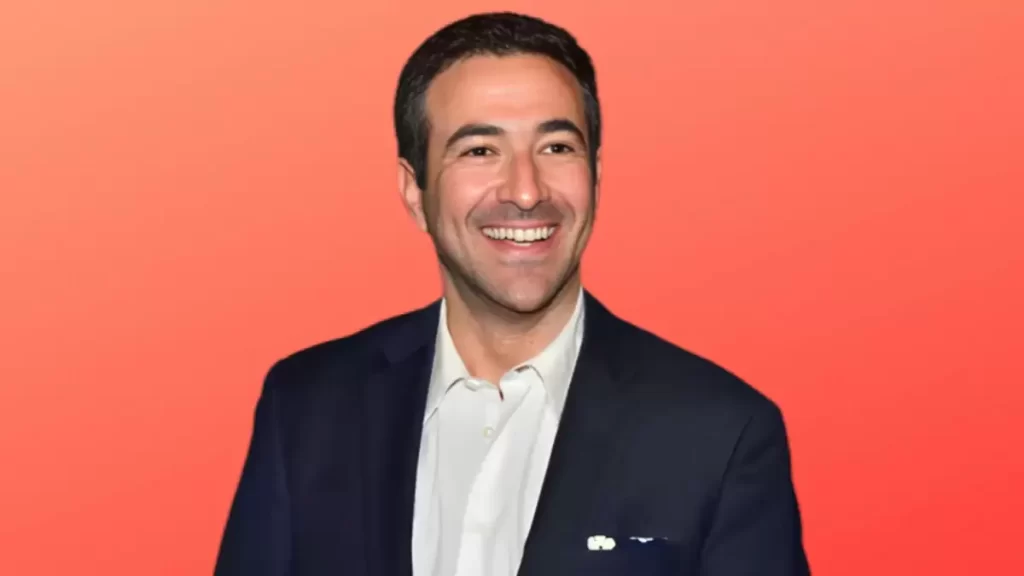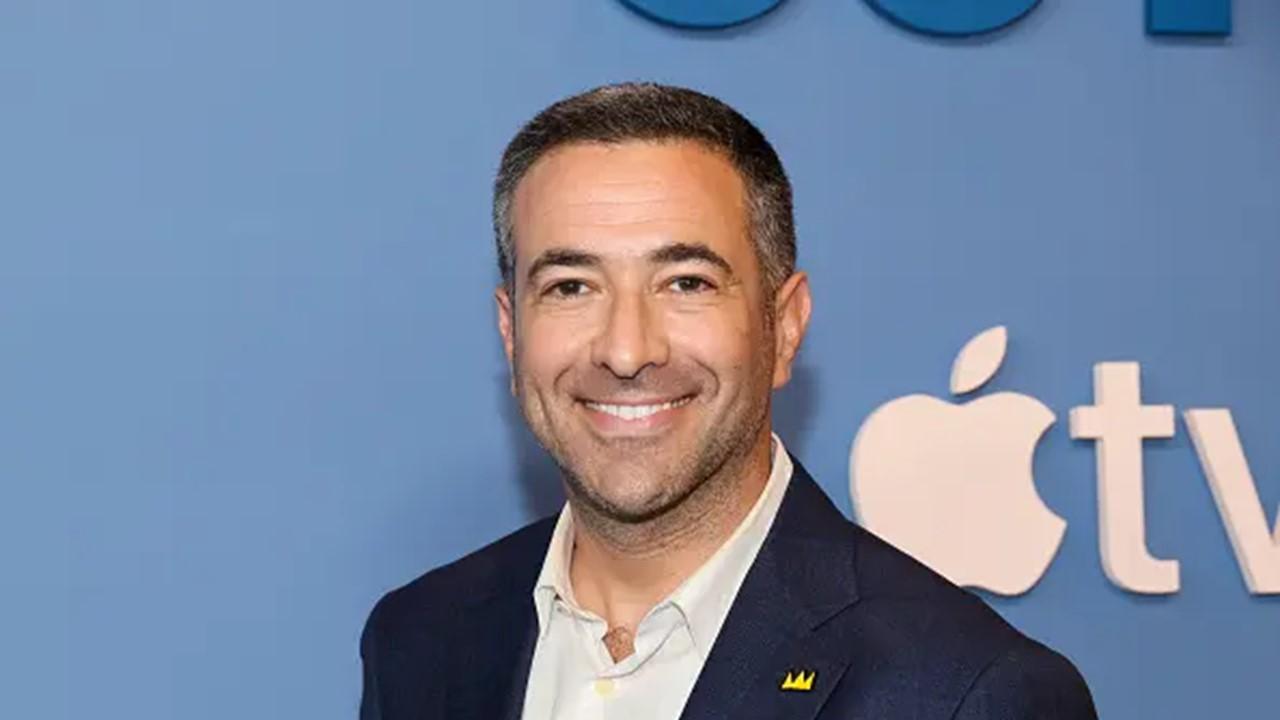Unveiling The Ethnicity Of Ari Melber: A Deep Dive
Ari Melber is a prominent figure in the world of journalism and political commentary. As the host of "The Beat" on MSNBC, he has gained recognition for his insightful analysis and engaging interviews. But aside from his professional achievements, many people are curious about the personal background of this influential media personality, particularly his ethnicity. Understanding the cultural heritage of public figures like Ari can help us appreciate the diverse tapestry of perspectives they bring to the table.
In this article, we will explore the various aspects of Ari Melber's life, including his ethnicity, background, and career. From his early life to his rise in journalism, we will provide a comprehensive overview of the man behind the screen. Additionally, we will address common questions regarding his heritage and how it influences his work and worldview. By the end of this article, you will have a clearer understanding of what ethnicity is Ari Melber and how it shapes his identity.
As we delve into the details of Ari Melber's life, we will also highlight the significance of representation in media and how individuals of diverse backgrounds contribute to shaping public discourse. So, let’s embark on this journey to uncover the ethnicity of Ari Melber and discover the richness of his story.
What is Ari Melber's Biography?
| Detail | Information |
|---|---|
| Full Name | Ari Melber |
| Date of Birth | March 31, 1980 |
| Place of Birth | Seattle, Washington, USA |
| Education | University of Michigan; Cornell Law School |
| Occupation | Journalist, Attorney, Political Commentator |
| Network | MSNBC |
What Ethnicity is Ari Melber?
Ari Melber's ethnicity has been a topic of interest for many. Born to a Jewish family, his heritage plays a significant role in his identity. The Jewish community is known for its rich history and cultural contributions, and Melber embraces this aspect of his background. His ethnicity not only informs his personal values but also influences his approach to journalism and storytelling.
How Does Ari Melber Identify Culturally?
Melber has openly discussed his cultural identity in various interviews and public appearances. He identifies strongly with his Jewish heritage, which is reflected in his values and the issues he often covers. This cultural identification allows him to connect with a broader audience, especially those who share similar backgrounds.
In What Ways Does His Ethnicity Influence His Work?
The impact of Ari Melber's ethnicity on his work is profound. It shapes his perspectives on social justice, civil rights, and political issues. Melber often highlights stories that resonate with marginalized communities, advocating for representation and equality. His experiences as a Jewish American also guide his understanding of discrimination and resilience, which he translates into his journalism.
- Las Vegas Raiders Background
- Volusia Public Records Search
- Billy Joel Diet
- Watercourse Way Palo Alto Ca
- Jane Leeves Movies And Tv Shows
What Are Some Notable Achievements of Ari Melber?
Ari Melber's career is marked by several notable achievements that highlight his expertise and contributions to journalism. Here are a few key accomplishments:
- Host of "The Beat": Melber has been the host of MSNBC's "The Beat with Ari Melber" since 2017, where he provides in-depth analysis of politics and current events.
- Legal Expertise: Before entering journalism, Melber practiced law, specializing in civil rights and criminal defense, which enhances his reporting on legal matters.
- Award-Winning Journalist: He has received numerous awards for his work, including the Edward R. Murrow Award for his investigative reporting.
- Published Writer: Melber has contributed to various publications, including The New York Times, The Atlantic, and more, showcasing his versatility as a writer.
What Role Does Representation Play in Journalism?
Representation in journalism is crucial for fostering a diverse and inclusive media landscape. Ari Melber's presence as a Jewish American journalist contributes to this representation, allowing for a more comprehensive understanding of the issues faced by various communities. Journalists from diverse backgrounds can tell stories that reflect the realities of their communities, bringing attention to underrepresented voices.
How Can Diversity Enrich the Media Landscape?
Diversity in journalism enriches the media landscape in several ways:
- Varied Perspectives: Different ethnicities and backgrounds bring unique viewpoints, which can challenge traditional narratives and broaden the public discourse.
- Increased Empathy: Understanding the experiences of various communities fosters empathy and awareness among audiences, leading to a more informed public.
- Better Representation: Diverse journalists can highlight issues that may be overlooked by mainstream media, ensuring that all voices are heard.
- Encouraging Dialogue: Inclusion of different ethnicities encourages dialogue about social justice and equity, promoting change and awareness.
What Is the Future of Ethnic Representation in Media?
The future of ethnic representation in media looks promising, with increasing awareness of the importance of diversity. Organizations and networks are beginning to prioritize hiring practices that reflect the demographic makeup of the population. This shift will not only benefit the media industry but also society as a whole, as it fosters a more inclusive narrative.
How Can Individuals Support Diversity in Journalism?
Individuals can play an active role in supporting diversity in journalism by:
- Consuming Diverse Media: Seek out news outlets and publications that prioritize diversity in their reporting and hiring practices.
- Engaging with Journalists: Follow and support journalists from diverse backgrounds, amplifying their voices and stories.
- Advocating for Change: Encourage media organizations to prioritize diversity and hold them accountable for their representation practices.
In conclusion, understanding what ethnicity is Ari Melber not only enriches our comprehension of his identity but also highlights the importance of representation in journalism. As a Jewish American journalist, Melber contributes to a more inclusive media landscape, advocating for diverse perspectives and stories. By recognizing the value of diverse ethnic backgrounds, we can continue to foster an environment that celebrates and uplifts all voices in the media.
Article Recommendations
- Thanksgiving Hours At Golden Corral
- New Movie Sam Elliott
- Empire State South Atlanta Ga
- Las Vegas Raiders Background
- Kroger Xmas Day Hours



Detail Author:
- Name : Edgar Smitham
- Username : paige27
- Email : mante.raquel@yahoo.com
- Birthdate : 1996-06-22
- Address : 917 Padberg Gardens Suite 377 Damiontown, AK 37738
- Phone : +1-781-501-3251
- Company : Turcotte Group
- Job : Electrical and Electronics Drafter
- Bio : Et alias quia quos rerum illum fugiat. Nihil voluptas aut et aut ipsam optio rem. In quaerat explicabo occaecati voluptas doloribus cumque. Eos omnis molestiae incidunt unde tenetur architecto.
Socials
tiktok:
- url : https://tiktok.com/@trace.senger
- username : trace.senger
- bio : Velit et asperiores similique in quo accusantium id.
- followers : 4372
- following : 382
twitter:
- url : https://twitter.com/trace_senger
- username : trace_senger
- bio : Molestias sapiente inventore inventore ab blanditiis. Tempora qui voluptatibus maxime excepturi quibusdam aut animi. Quia occaecati earum vel vitae.
- followers : 5160
- following : 1803
linkedin:
- url : https://linkedin.com/in/trace_real
- username : trace_real
- bio : Est officia voluptatem voluptatibus suscipit.
- followers : 4778
- following : 1599
instagram:
- url : https://instagram.com/tracesenger
- username : tracesenger
- bio : Sit non veritatis ducimus beatae sed iste sed. Repudiandae corporis maxime soluta.
- followers : 2558
- following : 583
facebook:
- url : https://facebook.com/trace_senger
- username : trace_senger
- bio : Autem fugit minus et earum distinctio iure cum. Sit nobis id tempora ut.
- followers : 5503
- following : 454
